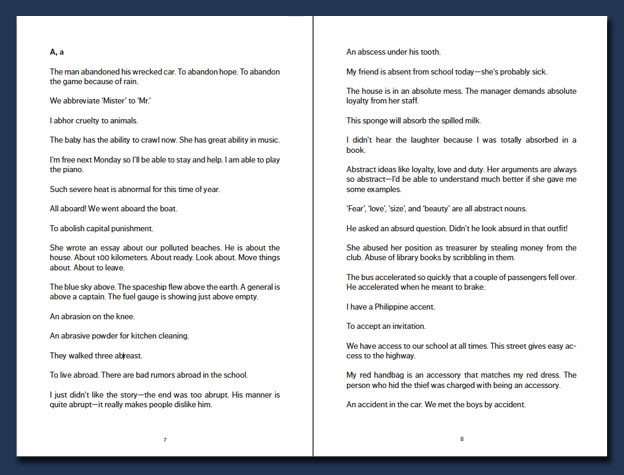Angelo Suárez’s ‘Philippine English’ and the language of Conceptual writing

I would like to consider Angelo V. Suárez’s Philippine English: A Novel (Gauss PDF, 2015) as a testing ground for the political work Conceptual writing can accomplish. This means historicizing before interpreting.
In 1898, after more than three centuries of Spanish rule, American imperialism instituted English as the new language of foreign power in the Philippines. Though the United States officially recognized the sovereignty of the Philippines in 1946, the legacy of American colonialism remains an active presence throughout the Philippine islands, including but not limited to its language. Linguistic studies such as Maria Lourdes S. Bautista’s 2001 “Studies of Philippine English”[1] explore this influence as it manifests in the Philippine English dialect — distinct from general American English, Filipino (the Philippine national language), and the common practice of code-switching between the two. Though expository, such studies provide the tools for reading political texts like Suárez’s Philippine English, which frames the linguistic shifts defining Philippine English as active political subversion.
Posited in its preface as bildungsroman, Philippine English lifts its language entirely from the Anvil-Macquarie Dictionary of Philippine English for High School, a gesture it uses to explore the ways Philippine English speakers transform compulsory English language acquisition into an act of cultural solidarity. If, as Wittgenstein argued, the limits of my language are the limits of my world,[2] Suárez’s Philippine English explores how Philippine English speakers undermine not only the sinister legacy of America’s presence in the Philippines until 1945, but also the culturally homogenizing force of English as the universal language of globalized, neoliberal capitalism. To forward this political argument, Philippine English claims the genre markers “Conceptual writing,” “novel,” and “poem.” This hybrid form means both maintaining and revising the twenty-six alphabetic sections found in the source text. In place of the standard dictionary sections, Suárez organizes his text around the altered pronunciations with which Philippine English speakers contort the international force of American English and culture (such as substituting the vowel sounds: [a] for [ae], [O] or [o] for [ow], [i] for [iy], [a] for [e], and [e] for [ey], among others).
I look to Philippine English’s opening chapter for a model to read the text at large. In addition to overtly political lines such as, “An American citizen. That tourist is American” (17), the “A, a” chapter also contains a number of highly politicized micronarratives running throughout the entire “novel.” Consider the following: “The ardor of love for your country. An ardent wish to do well at school. // A suburban area. An area of the body. The area of the school hall is 100 meters. // The arena of politics” (21). By attending to these shifts in pronunciation, beginning with the dually pronounced “ardor,” Suárez asks us to consider the disparate legacies of English-language nationalism in Philippine and American tongues. Moving to notions of a suburban body politic, he highlights how English language acquisition structures the Filipino imaginary, colonizing the psychogeography of English speakers with the middle-American suburban “ideal,” also forwarded by its ubiquitous culture industry. Like the history of public education in the Philippines, used by America to spread English as the language of bureaucratic colonialism, this ideological education happens in the seemingly impartial space of the schoolhouse. With the measurement in meters, however, Suárez reminds us that this political violence happens in a globalized political “arena” — same pronunciation in Philippine and American English — undercutting the binary logic of colonizer/colonized and creating a space for subversive influence.
If we look to the conceptual frame of Suárez’s text, we find an additional political turn. By transforming the authority of a dictionary meant to introduce Filipino teenagers to the global workforce into a document of spoken, embodied language, Philippine English makes a radical argument, positing speech over text, regionalism over globalism, and community over capital. Though these arguments permeate Philippine English, I’d like to close with another line from the “A, a” chapter, “I have a Philippine [a]ccent” (8). With this self-referential transformation of the historically othering “accent” into an authoritative pronouncement of Filipino identity, Suárez demonstrates how the inscription of spoken Philippine English into his “instructional” text turns the cognitive colonialism of international English against itself. While acknowledging that one can never fully withdraw from the pervasive nexus of globalized English-speaking capitalism, one can upend its cultural homogeneity by infiltrating the language enforcing it.
1. See Maria L. Bautista, “Studies of Philippine English: Implications for English Language Teaching in the Philippines,” Journal of Southeast Asian Education 2, no. 2 (2001): 271–95.
2. See Ludwig Wittgenstein, Tractatus Logico-philosophicus (London: Routledge, 2001).
Edited by Divya Victor